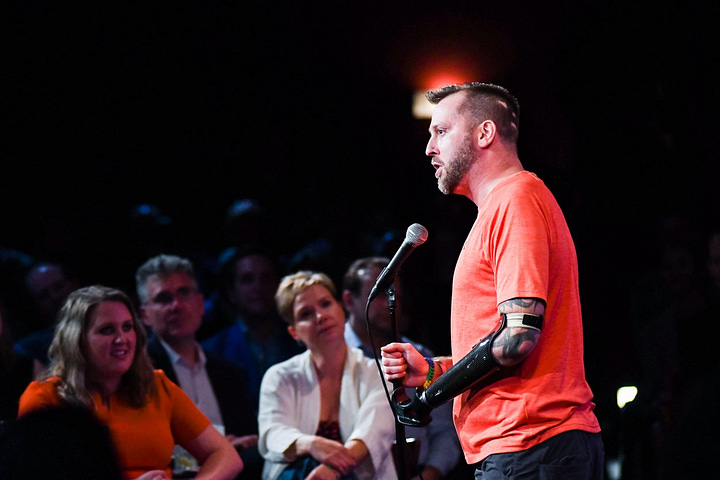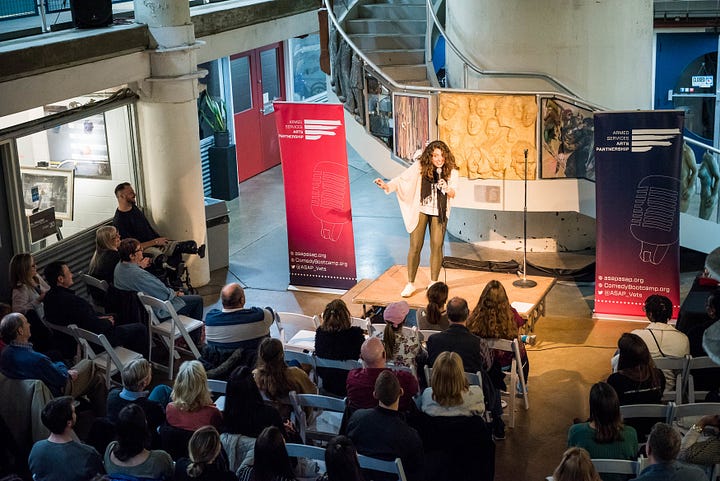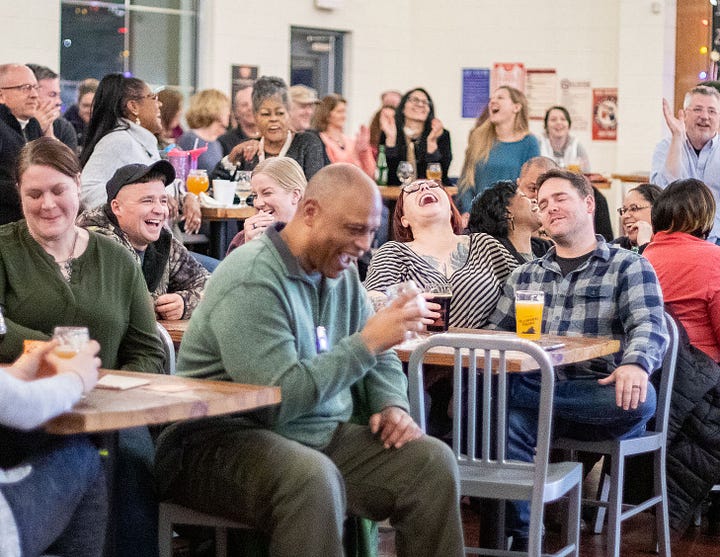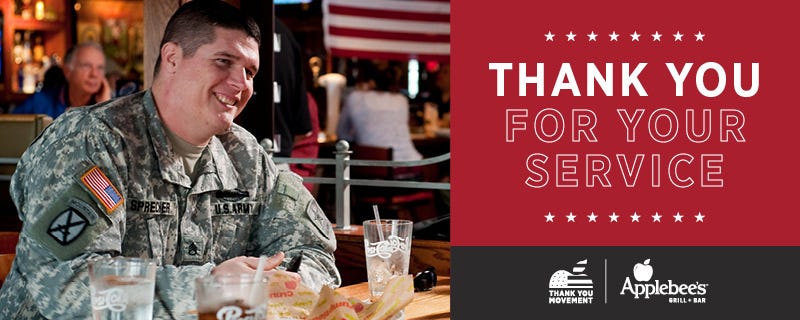How we can make Veterans Day less weird
Re-establishing the bond between the military and the American public. Reconnecting civilians with their veteran neighbors.
More than 22 years after 9/11, Veterans Day has become a distinctly weird holiday in the United States. And not good weird, either.
Each year November 11th rolls around, a familiar pattern repeats itself. We read a few human interest stories on veterans and military families. Veterans organizations remind us that they still exist and request donations. Car dealerships and mattress companies offer everyone “special” discounts. And we civilians feel obliged to thank the veterans we know for their service, though we don’t always exactly know why (perhaps for the discounts).
The weirdness of Veterans Day, I’d argue, is the result of a society that has become almost completely disconnected from its military. Service, once an obligation of citizenship, is now a choice. The creation of the All-Volunteer Force 50 years ago increased the quality and professionalization of the U.S. military. But it also severed the bonds between the military and the broader American public. For many Americans, military service has transformed from something expected of all of us—our fathers and mothers, our sons and daughters—to something they do over there.
This structural disconnection breeds cultural disconnection. We thank veterans for their service without asking questions about what their service entailed. This is not because we don’t care, but because we’re so disconnected that we don’t know how to ask or if we should even ask at all. We donate to nonprofits that valorize or victimize veterans because we feel bad that they bore the brunt of battle while we stayed home. Rather than try to close the distance between us and them, we use money to allay our guilt. The distance remains the same.
All of this distance, all of this disconnection makes transitioning from the military into civilian life even more difficult. The sense of camaraderie, purpose, and identity that, for many, define military service disappears at the point of transition. Veterans come home to a society that is disconnected from their experiences and neighborhoods where the institutions that provide belonging and meaning in life (e.g., community, religion, families) are breaking down. The acuity of alienation and isolation this creates cannot be understated. Most forms of PTSD can be treated. Finding connection and purpose at home, it turns out, can be a tougher task.
My experience with ASAP has shown me that there is a different way. Many civilians genuinely want to hear veterans’ stories, in all their messiness, complexity, and, at times, ridiculousness. And veterans have spent the last two decades building new community groups—both for fellow veterans and their broader communities—to serve as containers for purpose and belonging.




What would it look like to build on these efforts and to actually shift the structural and cultural drivers of disconnection? How can we make future Veterans Days a bit less weird?
We can all start by taking steps in our day-to-day lives. The next time you meet a veteran, don’t thank them for their service. Instead, ask them about their service experience and how it shaped them, then hold the space to actually listen. The next time a veterans nonprofit asks you to donate and uses victimizing language, think twice before giving. Instead, consider serving shoulder-to-shoulder with veterans in your community through groups like Team Rubicon, The Mission Continues, or More Perfect Union.
Communities can step up, too. Every town and college campus should have an annual veterans storytelling evening on Veterans Day. Local veterans should be expected to craft and share their stories, and their civilian neighbors should be expected to attend and listen. These events should be followed by breakouts that allow for genuine exchanges between veteran and civilian community members. This should become an American tradition, much like Fourth of July fireworks and MLK Jr. Day service projects.
Policy also has a role to play. To re-establish the bond between the military and the American public, we need to recommit to service as an obligation of citizenship. While reinstating the draft is not politically feasible, some form of universal national service is. An expectation of service during the adult transition—in the military, in communities, or elsewhere—would increase the size and demographic and geographic diversity of the military. Though no panacea, this could begin to reverse the 50-year trend in disconnection between the military and the American public.
Because, like it or not, the military is us, not them. We elect the politicians that have the power to send servicemembers to war. We will foot the bill for the debt that funds our military and VA. We have a responsibility to know our veteran neighbors, in their full humanity.
That could get weird. But weird in a good way.








Excellent as per usual - especially loved the bit on the necessity of re-committing to a public service obligation.